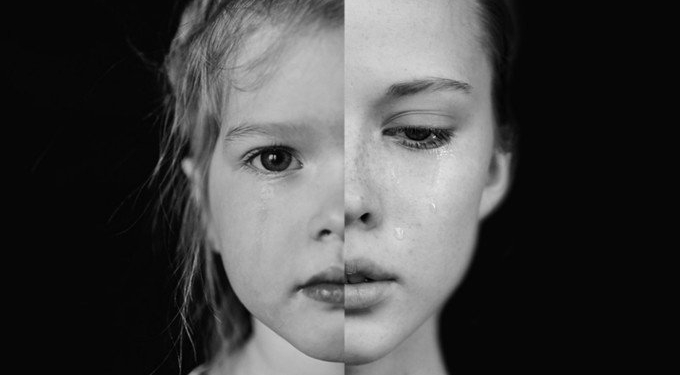
The love of our parents is something society views as another of our “unalienable rights” as children. Society tends to prefer to create the worldview that all parents love their children, know how to show that love, and know the best way to parent each individual child. It assumes that each parent is a mature, responsible adult without any past emotional issues that affect their parenting.
Sadly, that is not often the case. Parents are human. They make mistakes. They have their own views of the world and what is proper parenting. All parents have weaknesses and unresolved issues; some may struggle with mental illnesses, addictions, personality disorders, emotional wounds or more.
The results from parents who struggle to maintain themselves – much less raise healthy members of the next generation – are children often left to manage on their own. They not only must learn how to handle the parent but also learn how to socialize, handle their own emotions, form their view of the world, and adopt proper morals. There is a quote I read once from a psychologist that stated, “Children are excellent observers, but horrible interpreters,” meaning they see everything but can’t make sense of it or have the wisdom to put it into perspective. Without someone to help you do that, your view of the world (and yourself) becomes skewed.
Women, generally the more emotionally-sensitive sex, carry their childhood emotions with them far longer than the majority of men. This is not to say men don’t carry childhood wounds with them, but that they tend to approach them in a more pragmatic way as they get older. Women, however, carry the pain with them for many years. It affects all their relationships until they finally heal.
Here are 5 emotional wounds woman carry into relationships when they are unloved as children.
1. Attachment Issues:
A child raised with a parent who responds with love, support, and care will see relationships and attachments as something good and safe. A child raised where the parent doesn’t show affection or is inconsistent in their availability for the child, learns that “people can’t be trusted.” She is learning that relationships are not secure or consistent; they can change on you quickly. For a child who needs emotional feedback and affection, this is devastating. She grows up constantly seeking this connection yet teaching herself to remain entirely self-reliant. Relationships make her anxious and uncertain as she always expects rejection to come her way.
2. Trust Issues:
A child raised with a parent who makes themselves available and helps the child understand and resolve even simple problems becomes confident that others are there for her. A child raised with a parent who pushes them away must learn to handle things themselves; if that parent is completely absent, she often learns that she cannot trust others. She learns that people won’t protect her or help her and that relationships are unsafe.
3. Difficulty with Boundaries:
A balanced parent understands the importance of teaching their child that everyone deserves their own space and time; each individual is their own being and has different needs that should be respected. An unbalanced parent doesn’t give their child enough space. She will treat the child as if only her needs matter. As that child grows, she values her independence and space more than average while feeling the need to please everyone. She also misinterprets others’ needs for space. She believes that others are rejecting her if they don’t want her around all the time.
4. Dominated by Fear of Failure:
A parent should teach their child that failure is normal and it’s just a setback, not a destination. An unbalanced parent may be hypercritical or punitive if certain expectations aren’t met. There are also situations where parents don’t give any attention unless things were done to their expectations. This leaves a child feeling that if she does not perform exceedingly well, she is undeserving of love or approval.
5. Poor Sense of Self:
A parent should show consistent approval and attention to a child so that the child learns that she is lovable and good just the way she is. An unhealthy, hypercritical parent who doesn’t give compliments or show affection is teaching the child to doubt that she is worthy of love and attention and must not do things right. Essentially, she feels defective.
These emotional wounds may show themselves in many ways.
The results of these emotional wounds may differ depending on if the wounds were caused by their mother or father. Some wounds from inattentive fathers may show themselves as:
1) More prone to depression: Many women have a hard time with romantic relationships due to poor relationships with their fathers. It severely effects their self-esteem and can lead to depression due to the sadness they don’t know how to handle.
2) More prone to eating disorders: Daughters without a strong father figure are twice as likely to develop obesity. Essentially, they fill the void of emptiness with food. Others may become anorexic or bulimic. They think if they had been thin enough, “daddy would have loved me.”
















